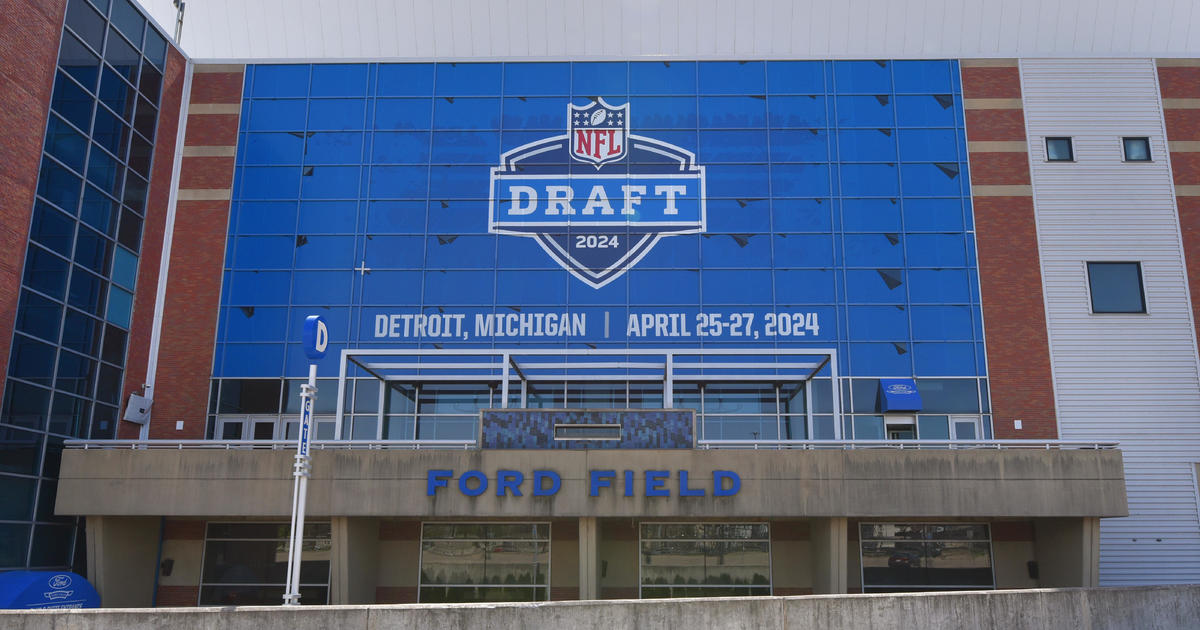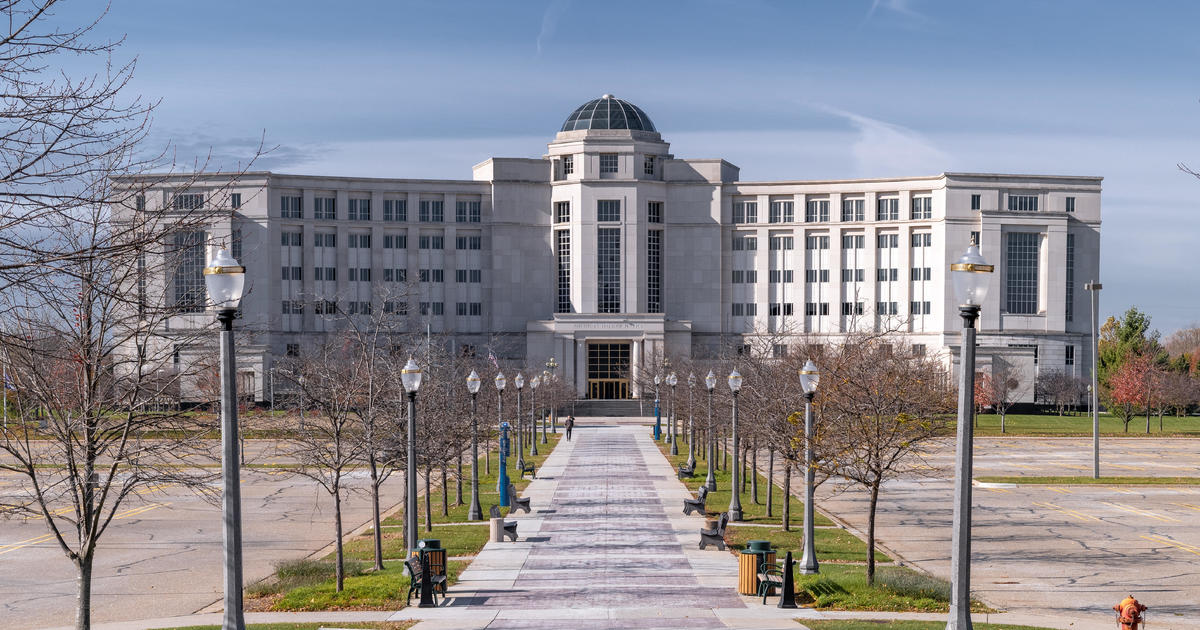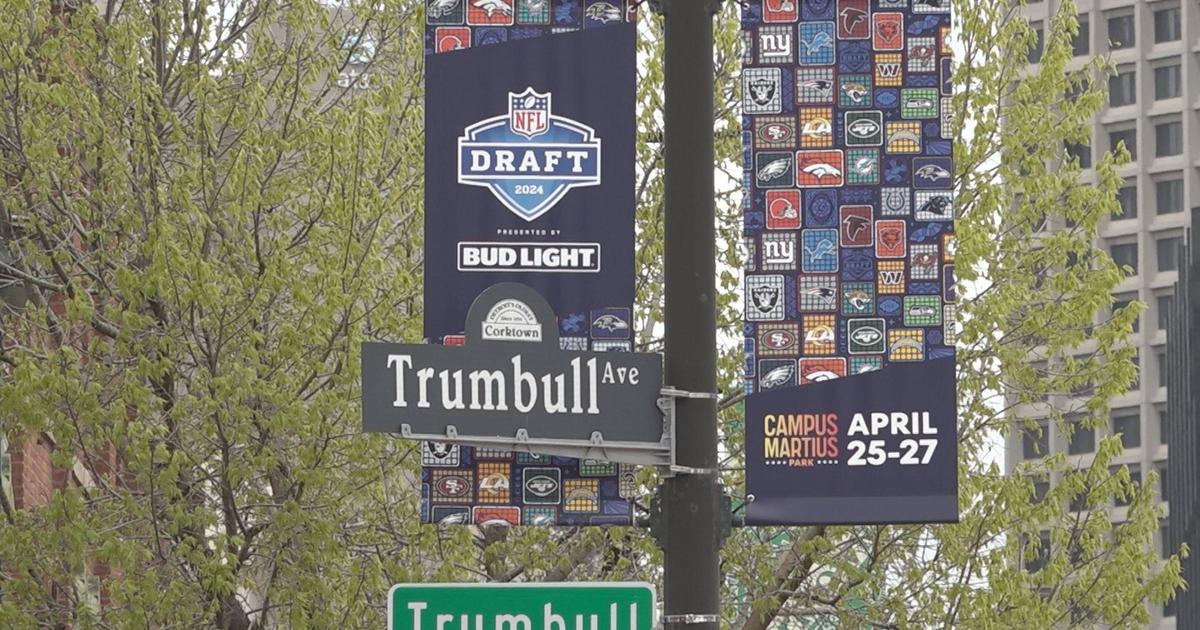Advocates Tell Renters To Seek Legal Advice As Moratorium On Evictions Ends This Week
CBS Detroit - If you are behind in the rent, now would be a good time to get legal advice. In an article by the Detroit Free Press, the moratorium on evictions by Governor Whitmer is set to expire this Thursday. Many are saying courts will be inundated with eviction filings the day it lifts.
This comes as a large number of Michiganders are still jobless and on unemployment. According to the State Court Administrative Office, 17,000 landlord/tenant cases are filing monthly. With COVID-19 and Governor Whitmer's Administrative orders halting evictions, they estimate a backlog of 75,000 cases to be filed.
Because of the expected storm of cases to be filed, the Michigan Courts have released guidelines for handling all the cases based on "length of time rent has not been paid, urges additional use of remote proceedings, highlights the availability of Community Dispute Resolution Program offices to help resolve cases, and expands use of conditional dismissals. "
- Due to COVID-19, every case will have its own scheduled time.
- Cases scheduled first will be those where illegal activity or extensive damage has occurred.
- Cases with rent no paid in 120 days get second priority.
- If a remote hearing's first proceeding is scheduled and the defendant doesn't appear, a default judgment will not be entered unless the defendant was personally served a summons. The case will be rescheduled.
- Each court must inform defendants of their right to have legal counsel. To assist those who cannot afford attornies, courts will provide information on local legal aid offices.
- In every case, as long as the defendant appears for the initial pretrial hearing to be advised of their rights, the court will adjourn the case for one week so that the defendant can exercise their rights.
- Defendants must also be informed of the availability of rental payment assistance from the Michigan Department of Health and Human Services (MDHHS), and Michigan State Housing Development Authority, as well as other community agencies.
- You cannot be evicted without an eviction order. When the moratorium is lifted evictions will proceed.
- Pay attention to any correspondence or call from the court. Read everything carefully and call with questions.
- If you cannot attend remote hearings, you need to let the court now.
- Reach out to programs and organizations that offer legal advice if you don't have an attorney.
Jim Schaafsma, an attorney with the Michigan Poverty Law Program had doubts about the new measures by the courts. Telling the Detroit Free Press, "The wave of evictions will be so strong that the measures that the court has taken and then the new housing program that the state has created won't be enough to fully blunt that wave,". This was in reference to a $50 million program that is set to help those who cannot make their rent.
Schaafsma thinks it would take more than $56 million to help just 20% of renters who are low income - for just one month. With that kind of shortfall, it's unclear what that might mean to those who risk losing their residences. Ted Phillips who is the Executive Director of the United Community Housing Coalition told the Free Press the need for assistance on rent at his non-profit has doubled in the last two months from last year. While he has recieved more donations and grants, the need is greater.
For one local man, he was able to find aid. Anthony Sumner, 60, of Detroit came down with COVID-19 and after he was discharged, he found himself $1,500 behind in 3-months rent, and the restaurant where he worked was closed. The United Community Housing Coalition struck a deal with his landlord to cover his back rent, and he would pay the rent going forward. Being able to get unemployment, he was able to make ends meet. Thanks to the non-profit he is now caught up and will be back at work later this month.
Governor Whitmer's new $50 million dollar Eviction Diversion Program, which is part of the $880 million from the federal government creates an Eviction Diversion Program (EDP). Under this program run by the MSHDA, landlords can receive 90% in a lump sum, but with that comes conditions. They waive any late fees and penalties and must forgive the other 10%. According to the Free Press, if the tenant receives $450 for $1,000 rent, $50 must be forgiven and the tenant has one year to pay the $500 owed.
While the funds are scheduled to be available until December 30 of this year, advocates are saying it will go fast. For those in Oakland County who have fallen behind, County Executive David Coulter unveiled a program that will give low-income residents up to $15,000 in a one time grant to cover rent, mortgage, and utilities who have been financially hit by the Coronavirus pandemic. People who wish to check out conditions or apply can click here.
© 2020 CBS Broadcasting Inc. All Rights Reserved. This material may not be published, broadcast, rewritten, or redistributed. Information from The Detroit Free Press contributed to this report.



